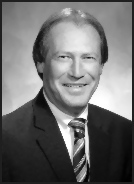Boise School District officials haven’t always seen eye to eye with Superintendent of Public Instruction Tom Luna and his shop.
But the Boise district is joining 92 other Idaho school districts in signing onto a state-funded WiFi service. The list of school districts opting into the controversial program was made public Friday morning.

“At its core, this is an infrastructure project, not a device project,” district Superintendent Don Coberly said Friday. “We believe that it’s much more appropriate for the state to help us build a highway than to tell us what kind of cars we need to buy.”
The Boise district publicly opposed Luna’s Students Come First laws — including Proposition 3, which called for providing laptop computers to all high school students. Voters rejected the laws in November.
Here, in full, is the Boise School District’s news release:
After conducting a thorough review of existing wireless technology, as well as detailed conversations with representatives from the Idaho State Department of Education and services provider ENA, the Boise School District has decided to participate in the state’s program to bring wireless services to local schools.
“This really is a move that will be very beneficial to our schools and our students,” said Dr. Don Coberly, Boise schools superintendent. “We’re already on a path for our secondary schools to have a four-to-one ratio of classrooms to wireless access by early this fall. By participating in the state’s program, we’ll be able to move to a very desirable two-to-one ratio. Plus, it gives us the flexibility to expand our own wireless program to areas requiring one-to-one access such as math, science and critical reading programs.”
Reviews of the state’s wireless program and Boise’s internal systems were conducted by the District’s chief technology officer and staff, the district’s four area directors and superintendency, and Board of Trustees President AJ Balukoff. The team determined that there would be minimal technological issues, as well as discussed a number of other issues including the lease arrangement, our own wireless expansion plans, and the cost/benefit analysis if the contract is terminated next year by the legislature.
While the district has often opposed or resisted the state’s one-size-fits-all approach to technology, Dr. Coberly pointed out that this is very different program. “At its core, this is an infrastructure project, not a device project. We believe that it’s much more appropriate for the state to help us build a highway than to tell us what kind of cars we need to buy.”
